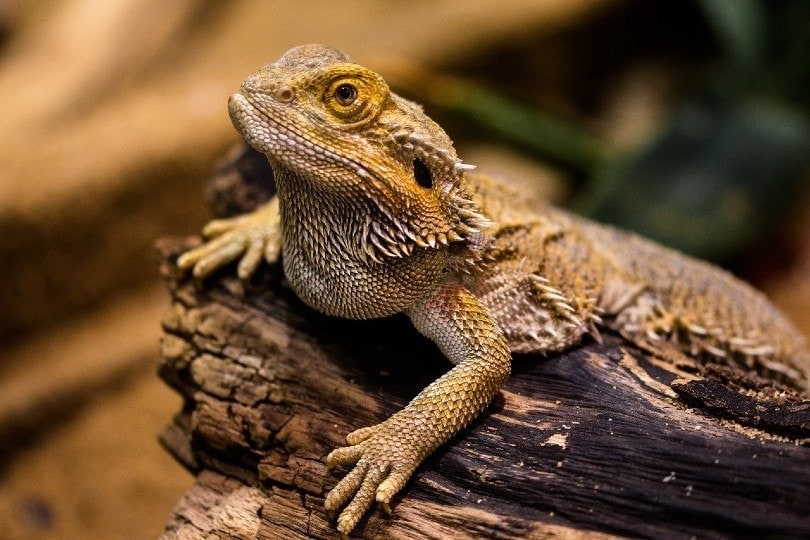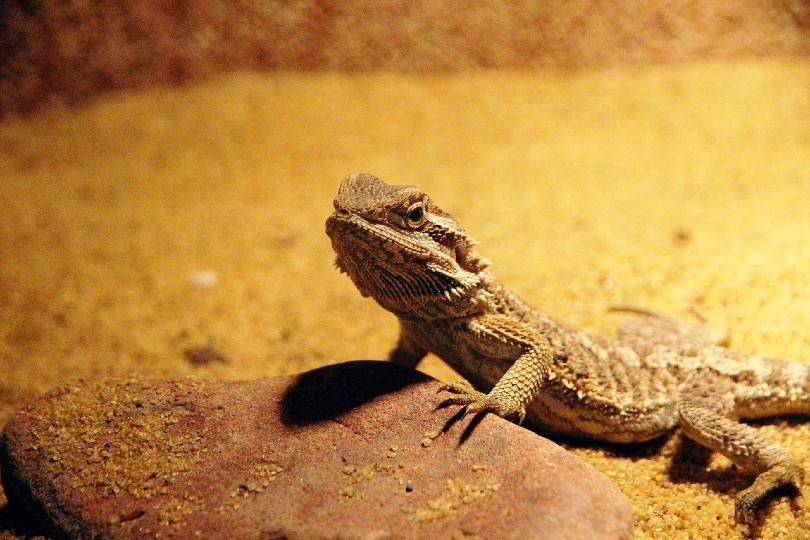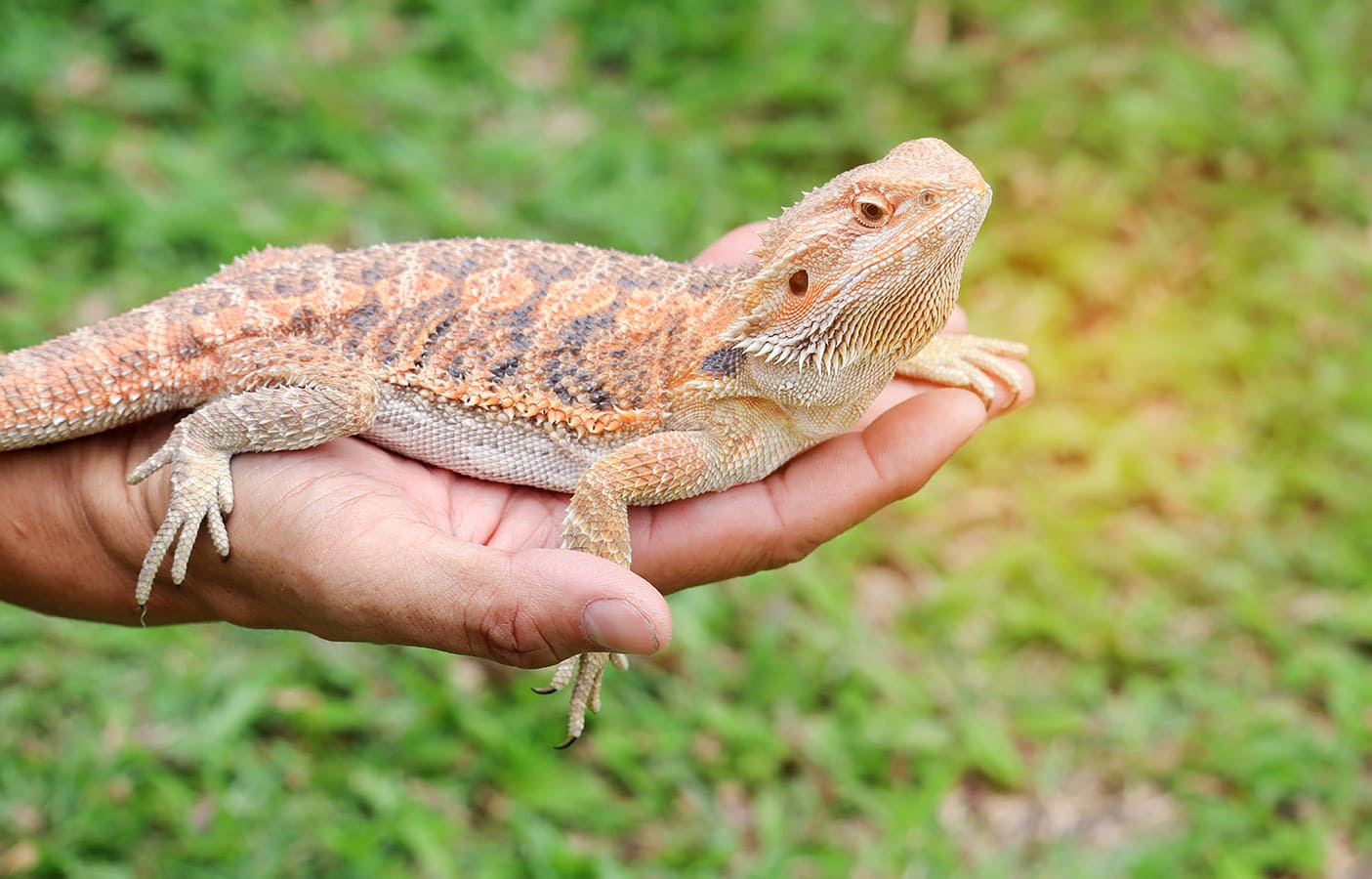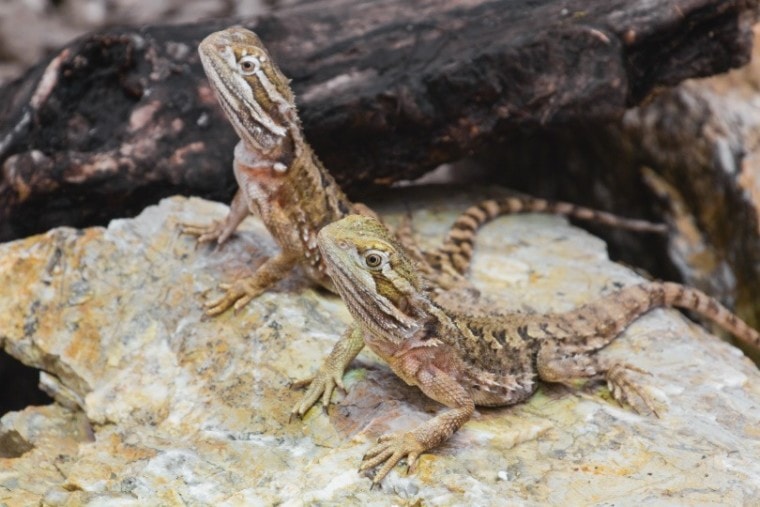
We get it that reptiles aren’t everyone’s idea of a cuddly pet. Nevertheless, nearly 6 million American households have opened their homes to a reptilian companion. Things haven’t always worked out well, with the proliferation of Burmese pythons in Florida a case in point. Bearded Dragons are popular pets that are relatively new to the scene.
Like many exotic animals, myths come with the territory. And there’s a lot of silliness surrounding bearded dragons, thanks to the Internet. Our mission is to set the record straight and separate fact from fiction for these reptiles. We hope that you’ll think of them differently after we have our run at the myth-busting.
The 7 Myths & Misconceptions About Bearded Dragons
1. Bearded Dragons Are Aggressive
This one is probably the first one you’ll hear. And as every bearded dragon owner will tell you, it’s horsefeathers. Maybe it’s the name that has given them a bad rap. It sounds scary, doesn’t it? At least that’s what all those fairy tales told us. The truth is that these lizards shatter the image of mean—given that you handle them frequently.
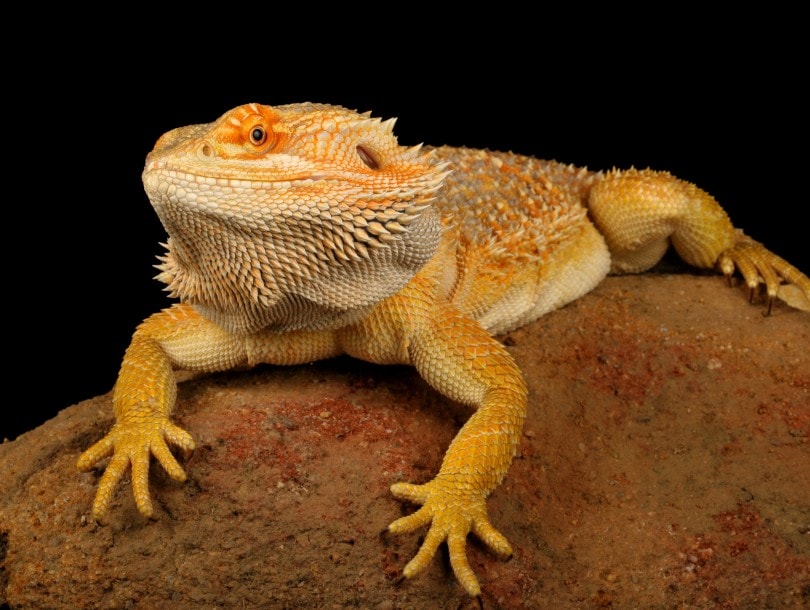
2. It’s Illegal to Own a Bearded Dragon
This myth is another one that belongs on the cutting room floor. Yes, some places, such as Delaware and Arkansas, will allow you to have them without a permit. Perhaps, this misconception stems from the fact that it shares the same name as Komodo dragons, which are usually illegal to own. The devil is in the details, as they say.
3. Bearded Dragons Only Eat Bugs
Perhaps every kid has heard their mom say that she doesn’t want a lizard and bugs in their house. That is another misconception. You’d be more correct to call the bearded dragon an opportunistic omnivore. It eats what it can find, whether it’s crickets, greens, or even the occasional mouse. A diverse diet is probably better anyway for the reptile to meet its nutritional needs.
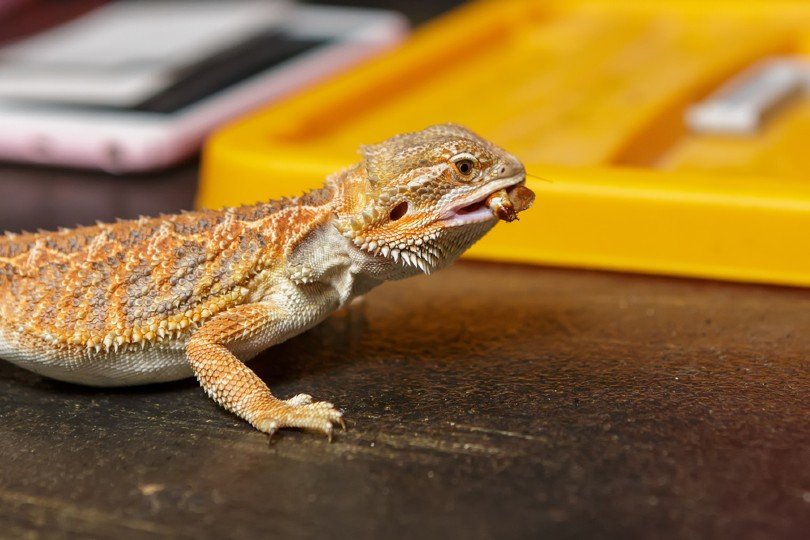
4. Bearded Dragons Are Hard to Keep
Bearded dragons are easy to keep, making them an excellent transition from beginner species, such as anoles. Their needs for an aquarium, heating element, and cleaning bedding are the same. The difference is that you’re dealing with a larger animal that also lives a lot longer.
5. You Can’t Interact With Your Bearded Dragon
We don’t often think of reptiles as animals that you can handle—not! You can pick up snakes and lizards, such as the bearded dragon. They are welcome to it. To be honest, they are probably grooving on your body heat, too, being cold-blooded. It’s an essential part of taming your pet to interact with it frequently.
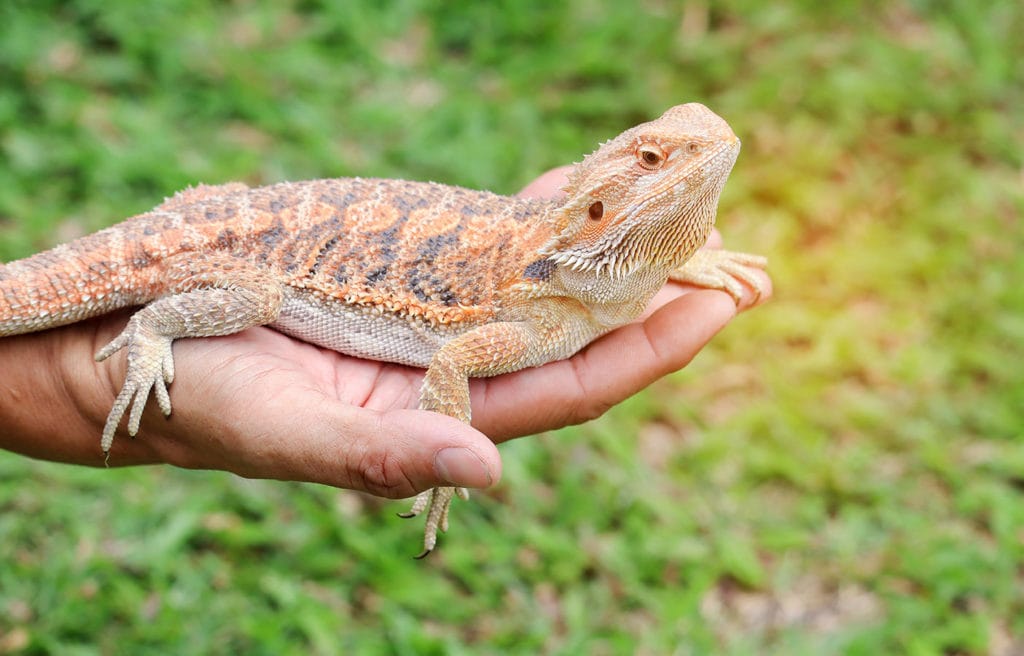
6. You Have to Have More Than One Bearded Dragon
Many people view reptiles as animals that only fare best with a group of other similar animals. That’s not the case with the bearded dragon. They are solitary in the wild, which isn’t unusual for predators.
7. You Must Keep Bearded Dragons in Small Tanks
Another head-scratcher is that you have to keep bearded dragons in small tanks. Otherwise, they won’t find their food. Well, they seem to do okay in the wild without any walls to prevent those insects and rodents from escaping. Instead, we’d suggest going big since your pet is going to get up to 24 inches long. It needs room to grow. It’ll also cut down on your maintenance if you give your reptile the extra space.

Final Thoughts
Like many reptiles, bearded dragons have dealt with the scourge of myths and misconceptions. The fact is that they have a positive effect on humans because they make such great pets. They’re quiet and easy to maintain. They aren’t fussy eaters, either. There is so much going for them that the biggest non-truth is that they don’t make good pets.
Featured Image Credit: TeeFarm, Pixabay



